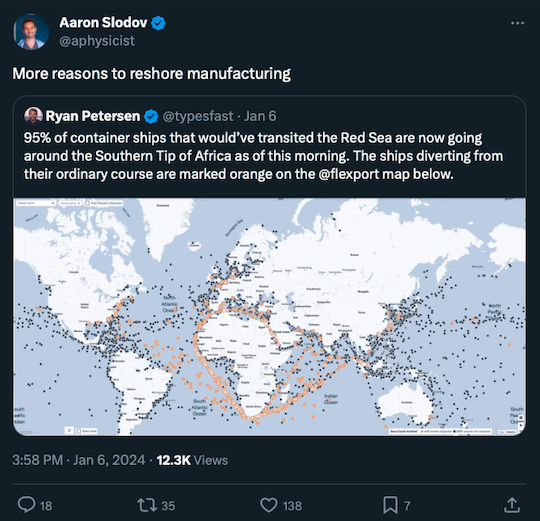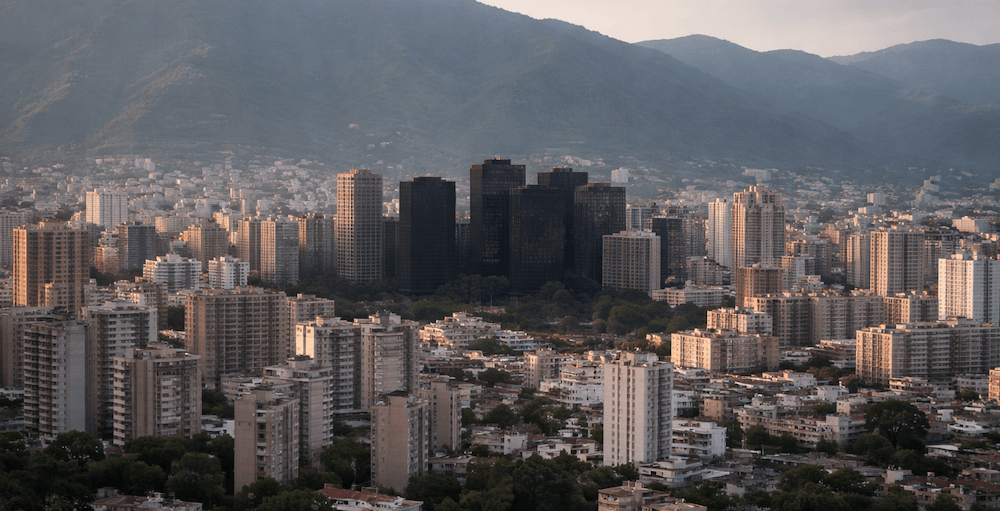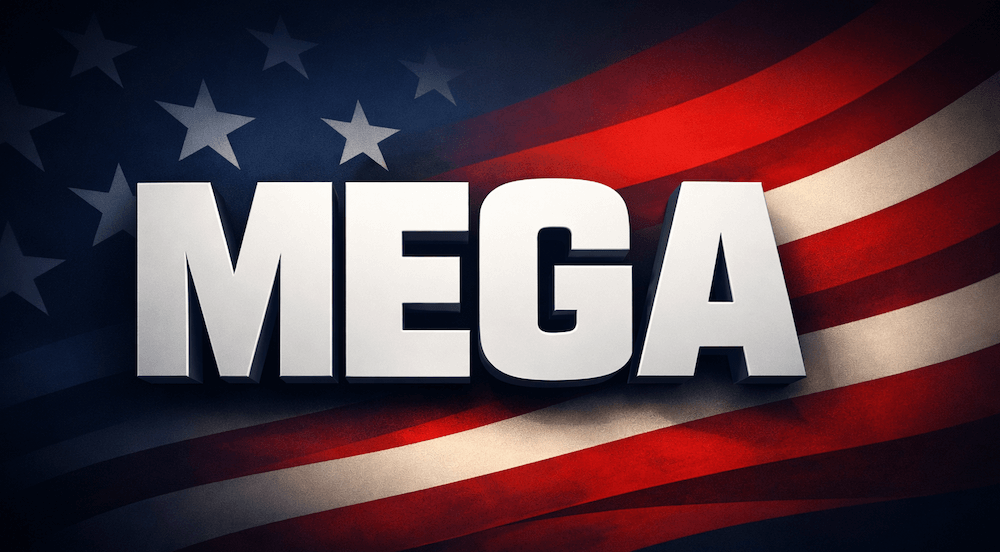
Posted January 08, 2024
By Matt Insley
The Slowbalization of Shipping
With the emergence of snarled global supply chains in the years after the immediate pandemic crisis, we took note of some “buzzwords in boardrooms.”
In 2022, they were onshoring, reshoring, nearshoring… even friendshoring.
The unifying idea was bringing a company’s outsourced manufacturing back to the United States — or, at least, to a “nearby” country, which, ostensibly, didn’t hate our guts.
As former World Trade Organization (WTO) chief Pascal Lamy put it: “Offshoring happened because it was more efficient. Reshoring happens because fragilities that were not priced in have appeared.”
But instead of de-globalization, Lamy forecasted “slow-balization” — a prolonged period of domestic insourcing of materials, manufacturing and services.
Of that “prolonged period,” however, Big Short investor Michael Burry observed: “Onshoring/blue collar shortages plus global supply chain restructuring raise long-term inflation’s floor.”
And all this was said before Yemen’s Houthi faction paralyzed shipping via the Red Sea and Suez Canal — which accounts for about 12% and 10% of global trade and oil shipments respectively
Send your opinions to, feedback@newsyoucanacton.com
Your Rundown for Monday, January 8, 2024...
The 80s Called, They Want Shipping Back
Consequently, global shipping has regressed to the 80s. The 1880s.
Ships have resorted to circumnavigating Africa, sailing around the Cape of Good Hope, which adds a significant amount of travel time and fuel costs for ships traversing between Asia and Europe.
This route can increase transit time by up to 40%. What's more, ships on this route must stop in South Africa for refueling and resupplying. However, South African ports are among the world's least efficient.
According to the World Bank's Container Port Performance Index ranking 348 ports, three major South African ports — Durban, Ngqura, and Cape Town — are ranked in the bottom 10 globally. The highest ranked South African port is Port Elizabeth, which sits at a dismal 291.
As analysts at Forward Observer research discovered by consulting the World Bank data, inefficiencies at these ports can turn a two-week Africa sailing delay into nearly a month or more of waiting for ships to cycle through.
Which leads us to an X-tweet sent along this morning from Paradigm editor Byron King…

“Wow, lots of ships taking the long route,” says Byron. “More time, energy, cost. Delays in loading and unloading. Friction in the global system.
“This will show up on U.S. shelves,” he concludes, “just in time for primaries and election season.”
In your opinion, what will be the upshot of this latest supply chain SNAFU — for inflation, the 2024 election and “reshoring”? Your opinion matters.
Market Rundown for Monday, Jan. 8, 2024
The S&P 500 is up just 0.05% to 4,735.
Oil is down 4% to $70.82 for a barrel of WTI.
Gold is down 1.15% to $2,021.50 per ounce, according to Kitco.
And Bitcoin is up almost 2%, over $45,000.
Send your comments and questions to, feedback@newsyoucanacton.com

Buck Sexton: Caracas Has Tehran’s Full Attention
Posted February 13, 2026
By Matt Insley

The Ring Cam’s AI Surveillance
Posted February 11, 2026
By Matt Insley

Make Shame Great Again
Posted February 09, 2026
By Matt Insley

SAAS STOCKS CRASH
Posted February 06, 2026
By Matt Insley

CA’s New Surveillance Tax
Posted February 04, 2026
By Matt Insley
